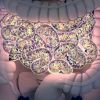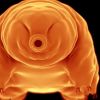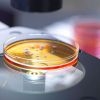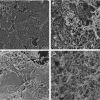-
 +32 +1
+32 +1Bacteria keep us healthy – but could they keep us young?
A study in mice has indicated that the make-up of bacteria in the gut is linked with learning abilities and memory, providing a potential avenue of research into how to maintain cognitive functioning as we age. It’s part of a field of research looking at the link between gut bacteria and ageing to help people live healthier lives in old age. The proportion of the EU population aged 80 or over is predicted to more than double between 2017 and 2080, with those aged 65-plus rising from 20 to almost 30%.
-
 +19 +1
+19 +1Microbial regulation of microRNA expression in the amygdala and prefrontal cortex
There is growing evidence for a role of the gut microbiome in shaping behaviour relevant to many psychiatric and neurological disorders. Preclinical studies using germ-free (GF) animals have been essential in contributing to our current understanding of the potential importance of the host microbiome for neurodevelopment and behaviour. In particular, it has been repeatedly demonstrated that manipulation of the gut microbiome modulates anxiety-like behaviours.
-
 +17 +1
+17 +1The last survivors on Earth
The world’s most indestructible species, the tardigrade, an eight-legged micro-animal, also known as the water bear, will survive until the Sun dies, according to a new Oxford University collaboration.
-
 +17 +1
+17 +199.999 percent of microbe species have yet to be discovered, say scientists.
Earth could contain 1 trillion microbial species, but humans only know about 0.001 percent of them, two biologists from Indiana University suggest in a paper published Monday in Proceedings of the National Academy of Sciences. "We've done a pretty good job of cataloguing macrobes. Maybe every few years you'll hear about a new worm at the bottom of the ocean, but the rate we are exploring new [plants and animals] is slowing down," Jay Lennon, a microbial biology researcher at...
-
 +17 +1
+17 +1The coffee-machine bacteriome: biodiversity and colonisation of the wasted coffee tray leach
Microbial communities are ubiquitous in both natural and artificial environments. However, microbial diversity is usually reduced under strong selection pressures, such as those present in habitats rich in recalcitrant or toxic compounds displaying antimicrobial properties.
Submit a link
Start a discussion




















